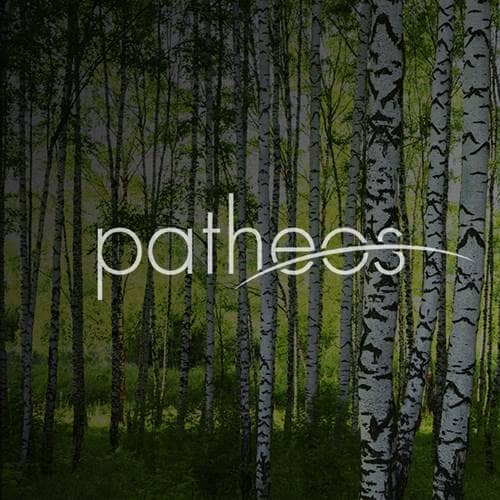- Trending:
- Pope Leo Xiv
- |
- Israel
- |
- Trump
- |
- Social Justice
- |
- Peace
- |
- Love

RELIGION LIBRARY
New Age
Rituals and Worship
Rites and Ceremonies
All New Age rites and ceremonies aim to encourage individual and social self-development and improvement, whether that be through the discovery of new truths, healing techniques, mastery of subtle energies, or study of esoteric knowledge. Since the New Age lacks a formal clergy and so many New Agers tend to practice their religion alone, drawing a distinction between rituals and everyday devotional practices presents a problem. The distinction between formal or institution rites and ceremonies and those done a daily basis - or in an informal, domestic setting - does not really exist for New Agers. Thus whereas seeking shamanic healing might represent a rare activity for most New Agers, a person suffering from a psychological illness might incorporate shamanism into their daily religious devotions as a form of self-therapy.
Many New Age rituals focus on healing the mind, body, spirit, or earth. Specific methods such as Reiki and Rolfing aim to heal particular problems, employing practitioners who have received training in the relevant New Age techniques. For example, New Agers believe that Reiki healers access invisible energy fields and manipulate them to heal bodily ailments and bring heightened spiritual awareness to their patients. The actual procedure blends the genres of medical technique, therapeutic message, and religious ritual. Patients lie flat and prepare themselves mentally for their treatment using a variety of relaxation techniques. Following this preparation, a Reiki healer moves their hands over their patient's body using techniques particular to their own practice, the teachings they ascribe to, and the symptoms that the patient has presented. Though other New Age healing rituals vary in their specifics, all share with Reiki a combination of the patient's mental and physical preparation and the healer's use of spiritual healing techniques.
In addition to Reiki, New Agers seek out a variety of ritual means of engaging and manipulating what they believe are their subtle bodily energies. While some of these techniques involve daily meditative work, others call for special ceremonial or ritual care. New Agers influenced by Asian traditions often seek out a spiritual teacher or guru for an intense retreat or workshop intended to access these inner energies. Those New Agers more influenced by western esoteric or Pagan traditions might use ritual magical ceremonies involving prayer to spirits, cardinal directions, deities, or the earth itself.
Another common New Age practice, that of channeling, represents one of the most common ritualized forms of New Age spiritual practice. Like New Age healing, channeling combines multiple genres: lecture, therapy, and psychic reading. The most successful channelers, such as J.Z. Knight, founder of the Ramtha's School of Enlightenment, offer large scale channeling wherein her channeled being speaks to auditoriums filled with New Age practitioners. During these events, Ramtha offers broad sets of teachings ranging from the nature of human life to the ancient history of Atlantis. Historians note that this type of channeling follows the pattern of 19th-century Spiritualism, during which a spirit possessed a medium and offered a lecture on such topics as ethics, life-after-death, or social development.
Many New Agers seek out less well-known channelers who offer one-on-one sessions wherein individuals can speak with the channeled beings, often angels, extraterrestrials, great religious leaders of the historical or mythical past, and sometimes even deceased family members. These sessions often combine the features of both therapy and psychic reading. Individuals ask the channeled beings for assistance in overcoming psychological ailments, making major decisions in their lives, or planning their futures. Different channelers utilize various ceremonial techniques as part of these practices, ranging from the burning of incense and candles or chanting. Some of these techniques require participation by both client and channeler. In some cases, New Age practitioners study with the channeler to learn such methods themselves.
A growing set of rituals in the New Age movement involves what their participants call shamanism. Shamanic techniques generally draw upon the religious practices of Native Americans, Mesoamericans, and South American Indians, though other shamanic practitioners also employ the approaches of traditional African and Australian traditions. In some cases, New Age practitioners attend shamanic ceremonies led by a master shaman, and in other cases they seek to learn shamanic techniques themselves. Generally, shamanic practices involve using specific ritual techniques to enter a form of trance wherein practitioners make themselves open to spirits and the spirit world. Shamanic ritual techniques include fasting, meditation, sweat lodges, and the ingestion of hallucinogenic plants and mushrooms. During shamanic experiences individuals seek to gain greater awareness of their inner natures, esoteric truths about the universe, psychological awareness, and spiritual development. In some cases, New Agers engage in a vision quest, during which they encounter a variety of images and scenes, and later seek to interpret them.
One of the rarer forms of New Age ritual is ritual sexual practices. In most cases, New Agers have borrowed such rituals from Buddhist or Hindu Tantric traditions or modern Paganism, all of which use sexuality as tools in the path toward self-awareness or enlightenment. In the New Age, sexual rituals serve a similar function. Those New Agers who employ such rites understand them as self-empowering and energizing, though many others highlight the power of ceremonial sex to overcome past sexual abuse or negative sexual experiences and heal the individual. In this regard the New Age has clearly differentiated its understanding of ritual sex from its Asian and Pagan precursors in a manner in keeping with the broader New Age focus on healing. Many New Agers who engage in ceremonial sexuality also value it as an alternative to the Jewish-Christian western mainstream, which they regard as devaluing the body and sexuality, particularly female sexuality.
Back to Religion Library
Many New Age rituals focus on healing the mind, body, spirit, or earth. Specific methods such as Reiki and Rolfing aim to heal particular problems, employing practitioners who have received training in the relevant New Age techniques. For example, New Agers believe that Reiki healers access invisible energy fields and manipulate them to heal bodily ailments and bring heightened spiritual awareness to their patients. The actual procedure blends the genres of medical technique, therapeutic message, and religious ritual. Patients lie flat and prepare themselves mentally for their treatment using a variety of relaxation techniques. Following this preparation, a Reiki healer moves their hands over their patient's body using techniques particular to their own practice, the teachings they ascribe to, and the symptoms that the patient has presented. Though other New Age healing rituals vary in their specifics, all share with Reiki a combination of the patient's mental and physical preparation and the healer's use of spiritual healing techniques.
In addition to Reiki, New Agers seek out a variety of ritual means of engaging and manipulating what they believe are their subtle bodily energies. While some of these techniques involve daily meditative work, others call for special ceremonial or ritual care. New Agers influenced by Asian traditions often seek out a spiritual teacher or guru for an intense retreat or workshop intended to access these inner energies. Those New Agers more influenced by western esoteric or Pagan traditions might use ritual magical ceremonies involving prayer to spirits, cardinal directions, deities, or the earth itself.
Another common New Age practice, that of channeling, represents one of the most common ritualized forms of New Age spiritual practice. Like New Age healing, channeling combines multiple genres: lecture, therapy, and psychic reading. The most successful channelers, such as J.Z. Knight, founder of the Ramtha's School of Enlightenment, offer large scale channeling wherein her channeled being speaks to auditoriums filled with New Age practitioners. During these events, Ramtha offers broad sets of teachings ranging from the nature of human life to the ancient history of Atlantis. Historians note that this type of channeling follows the pattern of 19th-century Spiritualism, during which a spirit possessed a medium and offered a lecture on such topics as ethics, life-after-death, or social development.
Many New Agers seek out less well-known channelers who offer one-on-one sessions wherein individuals can speak with the channeled beings, often angels, extraterrestrials, great religious leaders of the historical or mythical past, and sometimes even deceased family members. These sessions often combine the features of both therapy and psychic reading. Individuals ask the channeled beings for assistance in overcoming psychological ailments, making major decisions in their lives, or planning their futures. Different channelers utilize various ceremonial techniques as part of these practices, ranging from the burning of incense and candles or chanting. Some of these techniques require participation by both client and channeler. In some cases, New Age practitioners study with the channeler to learn such methods themselves.
A growing set of rituals in the New Age movement involves what their participants call shamanism. Shamanic techniques generally draw upon the religious practices of Native Americans, Mesoamericans, and South American Indians, though other shamanic practitioners also employ the approaches of traditional African and Australian traditions. In some cases, New Age practitioners attend shamanic ceremonies led by a master shaman, and in other cases they seek to learn shamanic techniques themselves. Generally, shamanic practices involve using specific ritual techniques to enter a form of trance wherein practitioners make themselves open to spirits and the spirit world. Shamanic ritual techniques include fasting, meditation, sweat lodges, and the ingestion of hallucinogenic plants and mushrooms. During shamanic experiences individuals seek to gain greater awareness of their inner natures, esoteric truths about the universe, psychological awareness, and spiritual development. In some cases, New Agers engage in a vision quest, during which they encounter a variety of images and scenes, and later seek to interpret them.
One of the rarer forms of New Age ritual is ritual sexual practices. In most cases, New Agers have borrowed such rituals from Buddhist or Hindu Tantric traditions or modern Paganism, all of which use sexuality as tools in the path toward self-awareness or enlightenment. In the New Age, sexual rituals serve a similar function. Those New Agers who employ such rites understand them as self-empowering and energizing, though many others highlight the power of ceremonial sex to overcome past sexual abuse or negative sexual experiences and heal the individual. In this regard the New Age has clearly differentiated its understanding of ritual sex from its Asian and Pagan precursors in a manner in keeping with the broader New Age focus on healing. Many New Agers who engage in ceremonial sexuality also value it as an alternative to the Jewish-Christian western mainstream, which they regard as devaluing the body and sexuality, particularly female sexuality.
Study Questions:
1. Why is it difficult to distinguish daily activities from New Age rituals?
2. Describe reiki as a ceremony.
3. What is channeling? What is shamanism? How are each performed?
4. How is sexuality used as a ritual?
Editor's picks See all columnists










